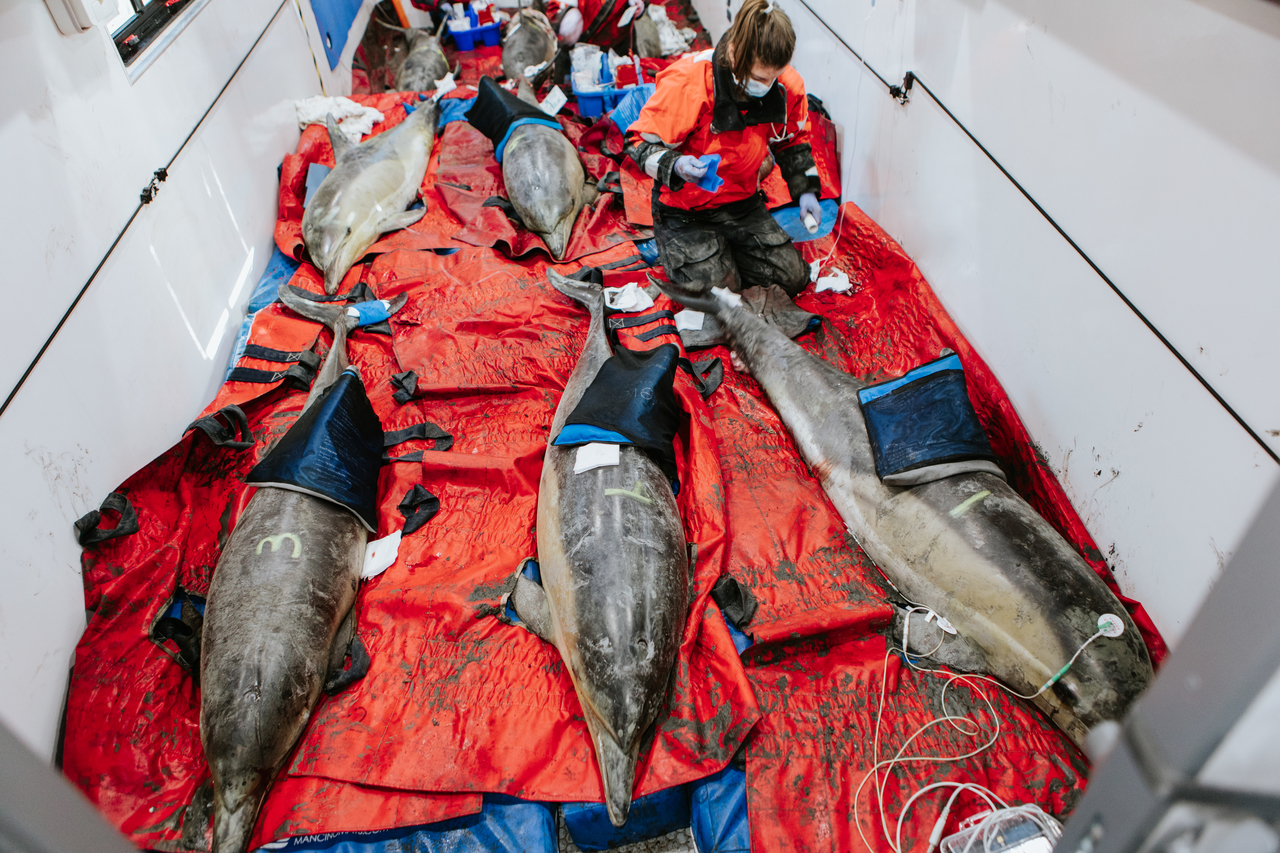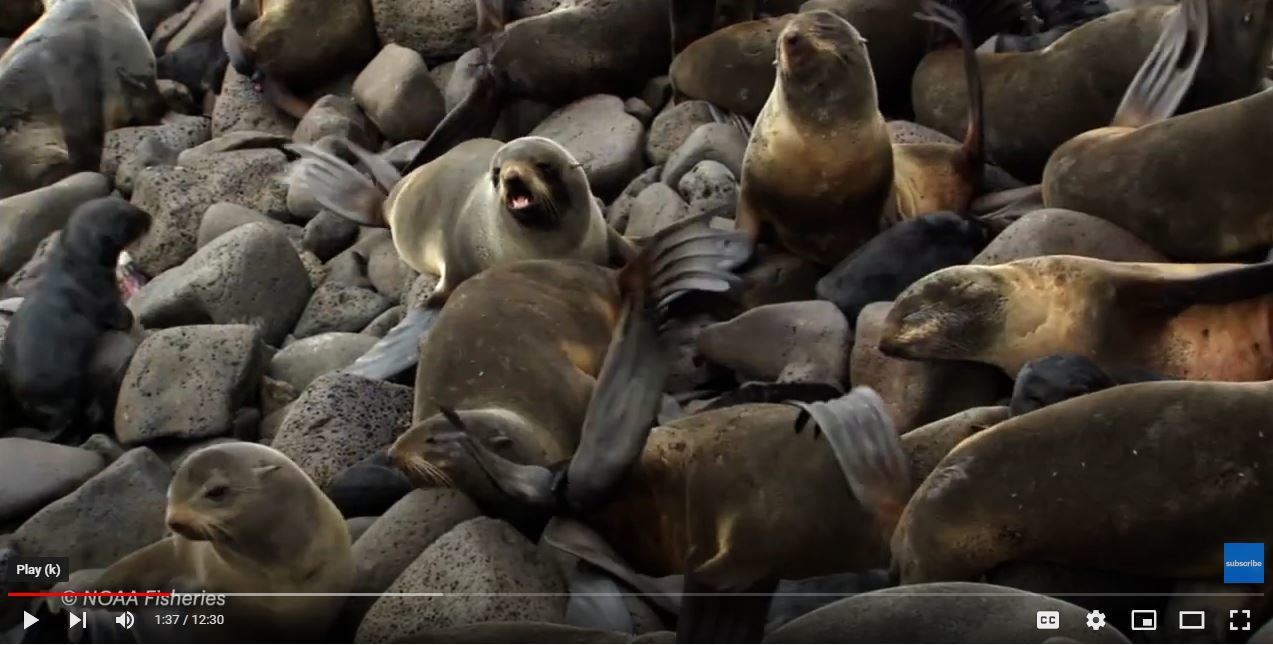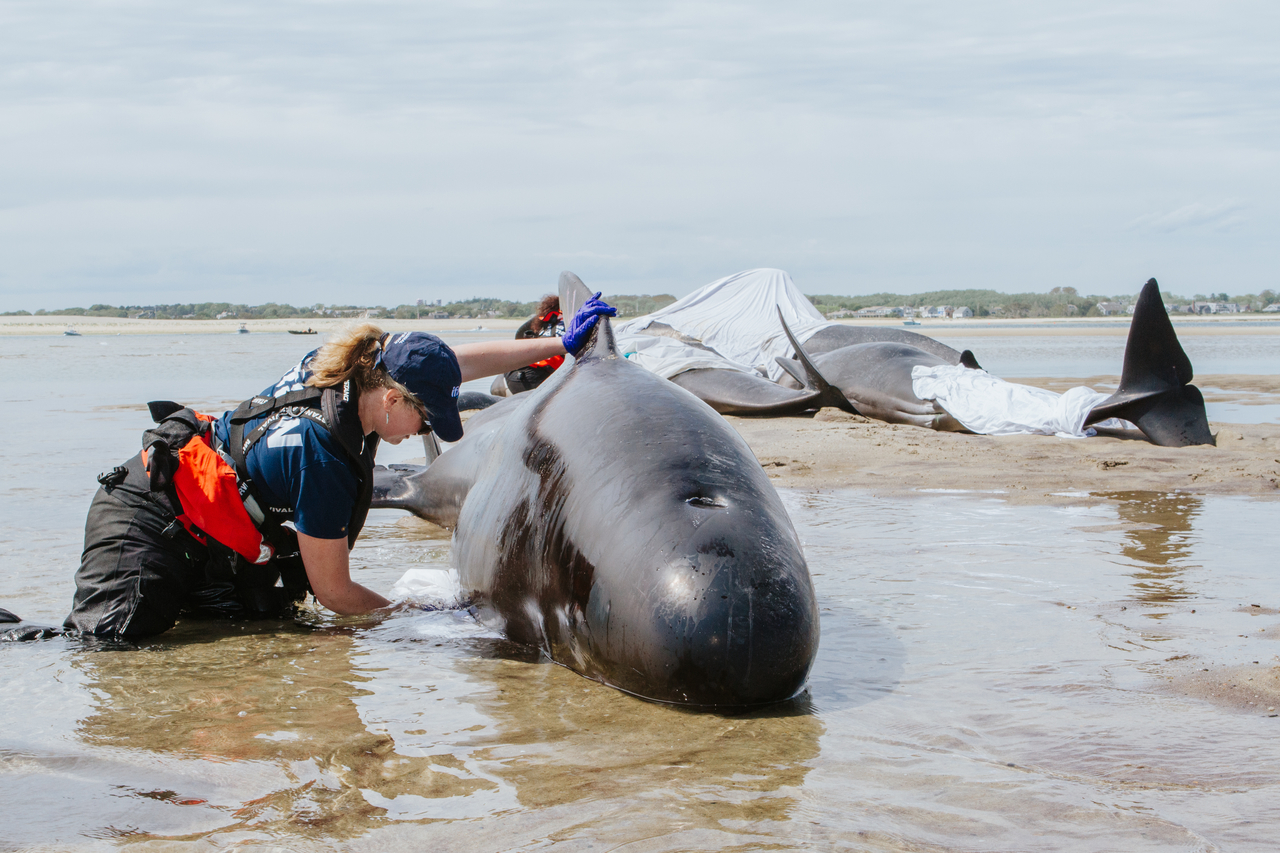Dr. Sarah Sharp
I have always been enthralled with the interconnectedness of all living things & the importance of conserving wild spaces.
celebrating 50 years of the Marine Mammal Protection Act in the US

For fifty years, the Marine Mammal Protection Act (MMPA) and its federal protection for marine mammals has been a huge conservation success in the United States. It has been instrumental in the recovery of marine mammal populations like sea lions in California, the Hawaiian Monk seal, and manatees in Florida, amongst others. No marine mammal species has gone extinct in U.S. waters since the MMPA was enacted.
The MMPA has been critical to the success of IFAW’s (the International Fund for Animal Welfare) marine rescue program. Based out of Cape Cod, Massachusetts, the program serves as the first line of defense for stranded marine mammals along 700 miles of coastline. Since 1998, our team has responded to nearly 6,500 marine mammals belonging to over 20 different species. Whether developing innovative rescue techniques for stranded marine mammals or advancing critical research on the health of these animals and their populations, we are pushing the boundaries of animal welfare and conservation. We can proudly say that IFAW’s team has become a global leader in marine mammal stranding response.

In the late 1960s, it became clear that human activities like commercial hunting had decimated populations of whales, dolphins, seals and sea lions. All species of marine mammals across US waters were in danger of extinction. In response, President Richard Nixon signed into law the Marine Mammal Protection Act, or MMPA, on October 21, 1972. This historic act prohibited the “taking” of all marine mammals without a permit, making it illegal to harass, hunt, capture or kill marine mammals. It also enacted a ban on the import, export and sale of any marine mammal, along with its parts or products within the US.
Crucial to the growth and success of IFAW’s work, amendments to the MMPA in 1992 formalized the Marine Mammal Health and Stranding Response Program. Under a stranding agreement with NOAA Fisheries, this program empowered stranding and entanglement networks across the country, giving us authorization to coordinate and conduct emergency responses for marine mammals. Without this program, our rescue team would undoubtedly not exist today.
To bolster the effectiveness of stranding networks, an additional amendment to the MMPA established the John H. Prescott Marine Mammal Rescue Assistance Grant Program with the goal of improving our nation’s ability to rescue, rehabilitate and conserve marine mammals. When our stranding response program was in its infancy in the early 2000s, this competitive grant program provided crucial funds to allow us to hire staff and purchase basic equipment to get our program off the ground. To this day, the Prescott grant program is an important source of much-needed funds to support our work and that of our colleagues.

The MMPA has enabled IFAW to serve as a leader in its mission to protect marine mammals in the US. On Cape Cod, we see the highest rate of live dolphin mass strandings of anywhere in the world. In response, we revolutionized how these animals are evaluated and treated in the field. Our rescue efforts can now be performed within a matter of hours, greatly improving the likelihood of survival and release back to the wild. In all, we have given nearly 800 dolphins a second chance at life.
It is estimated that up to 10% of gray seals on Cape Cod are entangled in life-threatening fishing gear. Over the years, our team has disentangled and released 56 seals, sparing them from significant pain and suffering. In the past, attempts to capture and disentangle seals were difficult, and we realized we needed a new approach. We worked with partners to develop a new technique to disentangle seals that involves darting, sedating and tracking the seal’s location throughout the rescue process. This has proved to be a safer, more effective approach, resulting in more lives saved.
Alongside our rescue efforts, the Marine Mammal Protection Act has enabled another key component of our work—research. Our team has performed hundreds of health assessments and necropsies, collecting valuable data. The resulting published research has helped to improve the scientific community’s knowledge of marine mammal life history, anatomy, physiology, health and disease to help better understand why these animals are stranding and how we can best save them.
Through technology in the form of small, temporary satellite tags, we can track and collect data from rescued and released animals to inform us about post-release survival, habitat selection and distribution of these species, which can then inform management decisions. Our satellite tag studies on released dolphins challenged the long-standing paradigm that all single-stranded dolphins are sick and must therefore be euthanized. We were able to prove that healthy single stranded dolphins could survive and thrive back in the wild. In addition, our research into the causes of stranding and prognosis for survival after release have helped improve stranding response protocols not only on Cape Cod, but also across the country and around the world.
Our work also helps fuel marine mammal conservation efforts for species survival. By performing necropsies on 94 large whales, we have demonstrated that critically endangered North Atlantic right whales are being killed by human activities like vessel strikes and entanglements in fishing gear. With a declining population of fewer than 335 North Atlantic right whales alive today, we are dangerously close to breaking the stellar track record of having no marine mammals go extinct under the MMPA.
While it’s important to celebrate the successes of the MMMPA, we must also realize that our work is far from done.
In the next decades of marine mammal protection in the US, we hope that the standards set in the MMPA continue to be upheld and strengthened to meet conservation needs as they unfold. Marine mammal populations around the world are facing new and elevated threats each day including entanglements, vessel strikes, pollution, ocean noise and climate change. Furthermore, recent legislative attacks on the MMPA have threatened its foundation and placed protected species in a more vulnerable position.
This is why protecting the Marine Mammal Protection Act is more crucial than ever. It’s essential that the MMPA can adapt and evolve to stay relevant and effective. Reflecting current scientific knowledge and developments, the ability of the MMPA to dynamically prevent individual deaths while preserving healthy populations will be critical to the sustainability of our marine ecosystems.
And now you you have a little extra insight as to why all our marine mammal response activities are accompanied by the disclaimer that our work is conducted under a federal stranding agreement between IFAW and NOAA's National Marine Fisheries Service "under the MMPA"—cool, right?
Dr. Sarah Sharp
I have always been enthralled with the interconnectedness of all living things & the importance of conserving wild spaces.
Our work can’t get done without you. Please give what you can to help animals thrive.
Unfortunately, the browser you use is outdated and does not allow you to display the site correctly. Please install any of the modern browsers, for example:
Google Chrome Firefox Safari